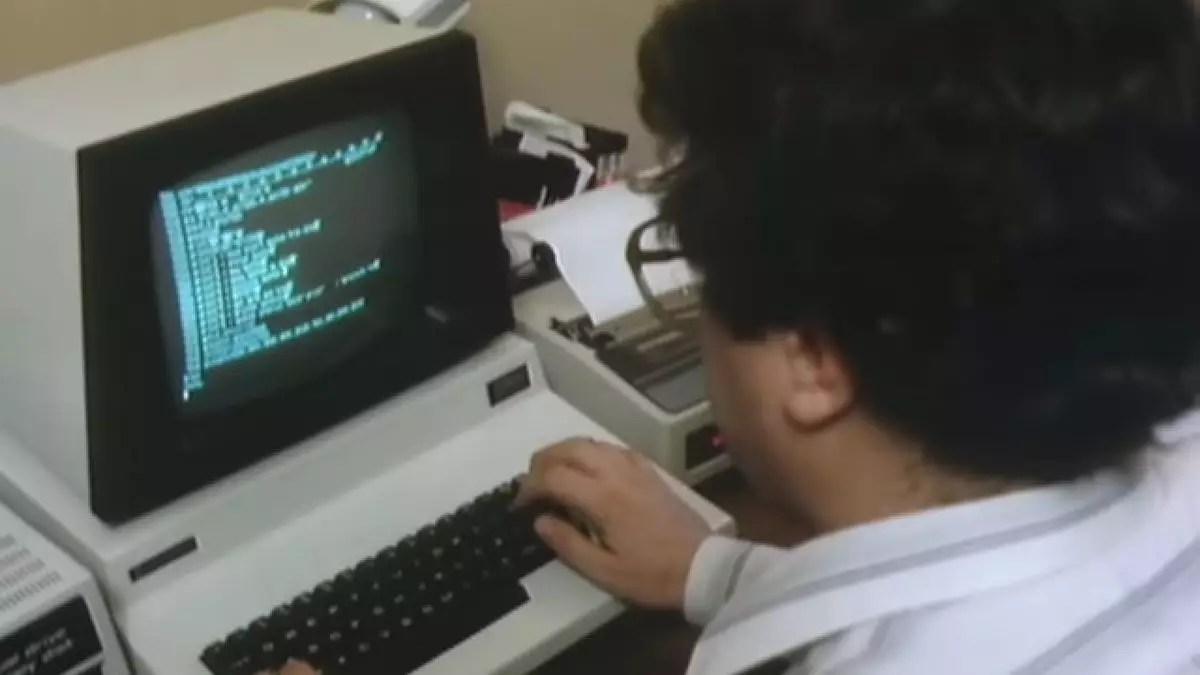The article delves into the early days of home computing, specifically in 1983, a time when the concept of “computer addicts” was first being explored. It highlights a BBC report from that era that showcased individuals who were considered pioneers in the use of computers for personal use. The report shed light on their daily habits and routines, including one individual who spent his lunch breaks at the pub playing video games. While the article paints a picture of these individuals as forward-thinking and innovative, it fails to address the potential negative consequences of excessive computer use, such as social isolation and neglect of personal relationships.
One of the individuals featured in the report, Chris Carter, is portrayed as someone who spends 20-40 hours a week behind the keyboard, to the detriment of his relationship with his partner. His wife expresses dissatisfaction with the amount of time he dedicates to his hobby, revealing the strain it has placed on their relationship. This aspect of the report raises important questions about the fine line between passion and addiction when it comes to computer use. While it is commendable that Chris finds joy and fulfillment in using computers, it is crucial to recognize the potential impact of excessive use on personal relationships and overall well-being.
The article also introduces businessman Graham Hawker, who is depicted as being consumed by his latest video game instead of enjoying a sunny day outdoors. His obsession with the game and the quest to rescue a princess from a wizard showcase the allure and escapism that computer technology can offer. However, it also highlights the potential pitfalls of becoming too reliant on technology for entertainment and fulfillment. The article fails to delve deeper into the societal implications of widespread computer use and the potential consequences of prioritizing virtual experiences over real-world interactions.
While the article presents a nostalgic and somewhat lighthearted look at the early days of home computing, it falls short in addressing the serious implications of computer addiction. The subjects of the BBC report are portrayed as passionate and dedicated individuals, but the line between healthy enthusiasm and harmful addiction is blurred. It is important to consider the long-term effects of excessive computer use on mental health, relationships, and overall quality of life. Reflecting on the stories of Chris Carter and Graham Hawker serves as a cautionary tale about the potential dangers of unchecked computer use and the importance of maintaining a balance between technology and real-life experiences.
While the article provides an engaging glimpse into the world of computer enthusiasts in the 1980s, it lacks a critical examination of the phenomenon of computer addiction. By focusing on the positive aspects of technology use without addressing the potential drawbacks, the article misses an opportunity to explore a complex and multifaceted issue. It is essential to approach the topic of computer addiction with a critical eye and a recognition of the potential risks involved. The stories of Chris Carter and Graham Hawker serve as reminders of the need to strike a healthy balance between technology use and real-world engagement.


Leave a Reply